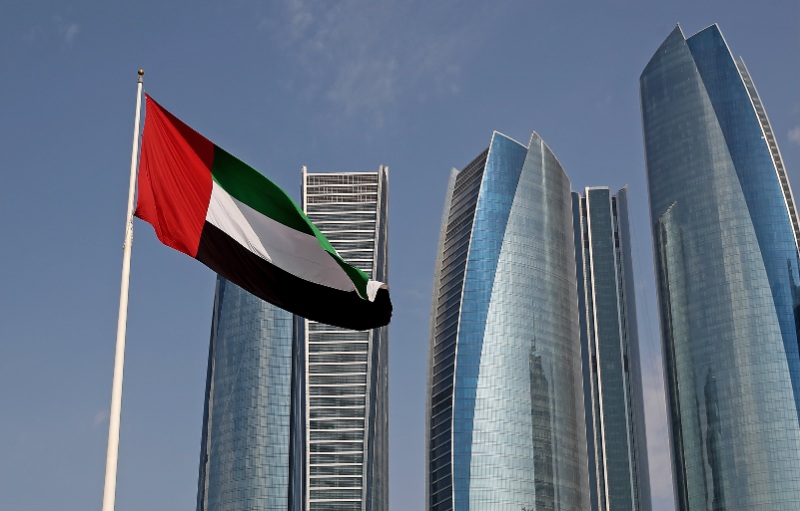
The COVID-19 pandemic has disrupted economies and societies worldwide, and the United Arab Emirates (UAE) is no exception. As the UAE continues to navigate the ongoing challenges of the pandemic, it is also looking toward the future of its workforce through the lens of Emiratisation. Emiratisation refers to the UAE government's policy of increasing the proportion of its citizens in the workforce, particularly in high-skilled and leadership positions. In a post-pandemic world, Emiratisation is more important than ever, as the UAE seeks to build a resilient and sustainable economy that can weather future shocks. In this blog, we will explore some strategies for Emiratisation success in a post-pandemic world.
Emphasize Digital Skills
The pandemic has accelerated the shift towards a digital economy, with remote work, e-commerce, and online learning becoming more prevalent than ever before. In a post-pandemic world, digital skills will be even more important for job seekers, particularly in high-skilled and leadership positions. Therefore, Emiratisation strategies should prioritize developing digital skills among UAE citizens, particularly in areas such as cybersecurity, data analytics, and artificial intelligence. This could involve investing in digital education and training programs, as well as promoting internships and apprenticeships in digital industries.
Foster Entrepreneurship
The pandemic has also highlighted the importance of entrepreneurship in driving economic growth and innovation. Emiratisation strategies should aim to foster a culture of entrepreneurship among UAE citizens, particularly among young people. This could involve providing funding and support for small businesses and startups, as well as promoting entrepreneurship education and training. By encouraging entrepreneurship, Emiratisation can create new opportunities for UAE citizens to create jobs and drive economic growth.
Provide Mentorship and Career Development
Mentorship and career development are crucial for nurturing talent and ensuring that UAE citizens can succeed in high-skilled and leadership positions. Emiratisation strategies should prioritize providing mentorship and career development opportunities for UAE citizens, particularly in industries where they are underrepresented. This could involve partnering with private sector companies to provide mentorship and training programs, as well as creating government-led initiatives to support career development.

Encourage Public-Private Partnerships
Emiratisation is a shared responsibility between the government and the private sector. Public-private partnerships can be a powerful tool for promoting Emiratisation and building a sustainable workforce in the post-pandemic world. The government could work with private sector companies to develop Emiratisation targets and strategies, as well as provide incentives for companies that prioritize hiring UAE citizens. Additionally, the government could provide funding and support for private sector-led Emiratisation initiatives.
Promote Diversity and Inclusion
Finally, Emiratisation strategies should prioritize promoting diversity and inclusion in the workforce. This means ensuring that UAE citizens from all backgrounds and abilities have access to high-skilled and leadership positions. To achieve this, Emiratisation strategies should promote equal opportunity and anti-discrimination policies, as well as provide training and education programs to address unconscious bias and promote cultural awareness.
Emiratisation is more important than ever in the post-pandemic world, as the UAE seeks to build a resilient and sustainable economy that can weather future shocks. By prioritizing digital skills, entrepreneurship, mentorship and career development, public-private partnerships, and diversity and inclusion, Emiratisation can succeed in creating a workforce that is skilled, innovative, and representative of the UAE's citizens.
Ultimately, Emiratisation is not only a policy but a vision for the future of the UAE's workforce, and one that will require ongoing commitment and collaboration between the government, the private sector, and UAE citizens.
Achieving Emiratisation success in a post-pandemic world will require a collaborative effort between all stakeholders. The government must continue to invest in education, training, and mentorship programs that promote Emiratisation. Private sector companies must prioritize hiring UAE citizens and providing them with opportunities for career development and advancement. UAE citizens must also play an active role in their own career development, by seeking out education and training programs and being willing to take on new challenges.
In addition to these strategies, it is also important to measure and track Emiratisation progress. This can be done through regular reporting and monitoring of Emiratisation targets, as well as through data collection and analysis to identify areas of success and areas that require improvement. By tracking progress, stakeholders can identify what is working and what needs to be improved and adjust their strategies accordingly.
In conclusion, Emiratisation is a vital component of the UAE's economic and social development and is more important than ever in a post-pandemic world. By prioritizing digital skills, entrepreneurship, mentorship and career development, public-private partnerships, and diversity and inclusion, Emiratisation can succeed in creating a workforce that is skilled, innovative, and representative of the UAE's citizens. However, achieving Emiratisation success will require ongoing commitment and collaboration between the government, the private sector, and UAE citizens. By working together, we can build a workforce that is ready to meet the challenges of the future and drive sustainable economic growth and development in the UAE.
Read similar here!


